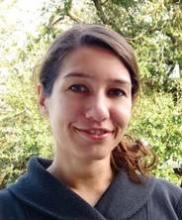Note: Every autumn within family medicine residency programs across the nation, we have the opportunity to meet and get to know through interviews and personal statements some of the best and brightest medical students in the nation. Sometimes, these meetings and essays are mundane – but other times, they are fantastic, with the time allotted for the interview being far too short. Reading some of these excellent essays reminds me of the idealism and vibrancy that our young physicians bring to the field and reassures me of the strength and vitality of our specialty’s future. Here is one of those essays from a 4th-year medical student from Tulane University, New Orleans.
– Dr. Neil Skolnik, family medicine residency program associate director, Abington (Pa.) Memorial Hospital.
The town of El Guineo, Nicaragua, did not have electricity or running water. Our health post was a rickety one-room house that we divided into exam rooms by hanging blue tarps – the very same that draped New Orleans after Hurricane Katrina. People walked for hours from neighboring communities to reach our makeshift clinic. Come dusk, the waiting area was still bustling as tenderhearted locals brought water and fruit to strangers who waited patiently in the heat. Come nightfall, we saw the remaining patients by flashlight.
The need for care was stunning, only to be outshined by the dedication of our team working tirelessly to see everyone before bedtime. Although I did not know it at the time, it was in El Guineo that the trifecta of knowledge, good will, and perseverance would ignite my pursuit of family medicine.
While learning about community medicine and the vibrant people and culture, I was also questioning our methods and their long-term outcome. I began inquiring about health infrastructure, only to uncover how small of an impact our voyage may have had on the quality of life of our new friends.
It is frustrating to know that people are born into a roulette of poverty and governmental neglect that can become cyclical and all encompassing; it is terrifying to know that with a single mutation or slight gust of wind, the cards of privilege may have landed differently. I may never be in a position to know if I would have had the gumption to pull myself up by my proverbial bootstraps, but I do have the ability to help ameliorate the injustice of this situation. My ongoing training in medicine and public health has made it clear that a large part of the answer to our myriad of health problems is in the empowerment of our patients.
Back in New Orleans, I served as a counselor at our student-run clinic, Fleur de Vie, where I witnessed firsthand the severity of the need to revamp our education system.
As a distance runner, yoga enthusiast, and novice chef, I feel comfortable and passionate talking to patients about ways to create healthy changes in their daily lives. Our topics ran the gamut of primary care: nutrition, exercise, depression, high blood pressure, and smoking cessation. The regularity with which the same questions and misconceptions arose exposed how gravely our education system had failed our community.
Our patients experienced barriers to healthy living that were grossly and grotesquely apparent – and, not surprisingly, disproportionately affecting lower socioeconomic brackets. Knowing how easily I could have been in their shoes haunts me to this day. Ideas to remedy these inequities began to percolate.
Almost too conveniently, a clerkship in family medicine provided a venue in which to explore my newfound interest, as we were encouraged to address the health needs of our clinic demographic.
I had been stationed at a practice in the quirky Bywater neighborhood of New Orleans, where artistic talent runs rampant and wealth is not measured monetarily. I was eager to provide the residents with something that exuded the same warm-heartedness and vigor that they showed me each day.
Within the confines of cost, space, and access to technology, I sought to address physical and mental fitness – with the acknowledgment that if ignored, these basic tenets of primary care can wreak havoc on the entire body. Without a safe neighborhood for walking, access to bicycles or swimming pools, or the luxury of gym memberships, yet with the seemingly standard home amenities of a television and DVD player, a yoga DVD was born.
I was proud to have developed something that could make access to healthy living an option for everyone, but it did not take long before I encountered a population for which such conveniences are not commonplace: our homeless youth.


